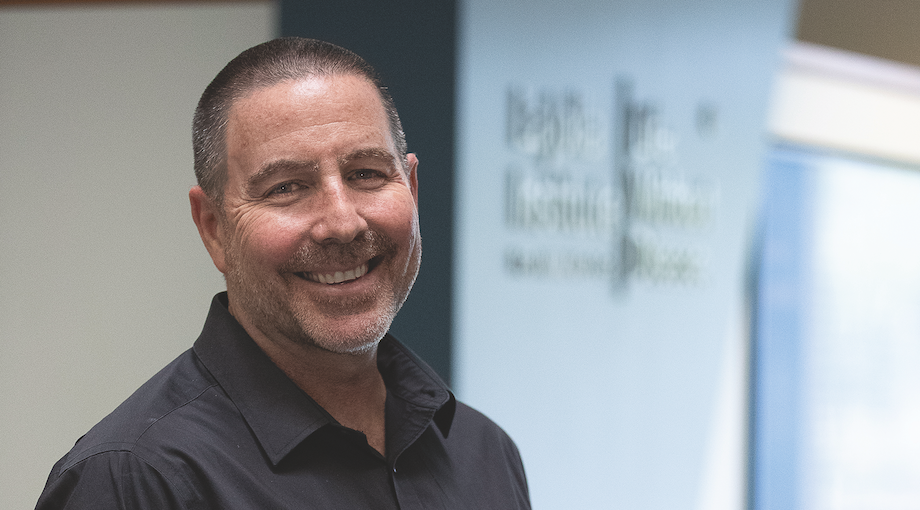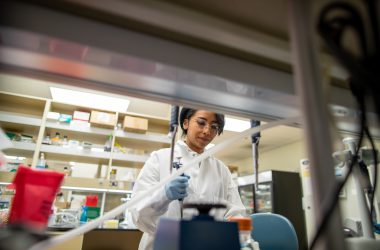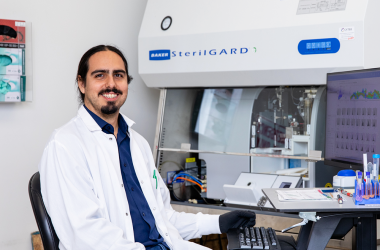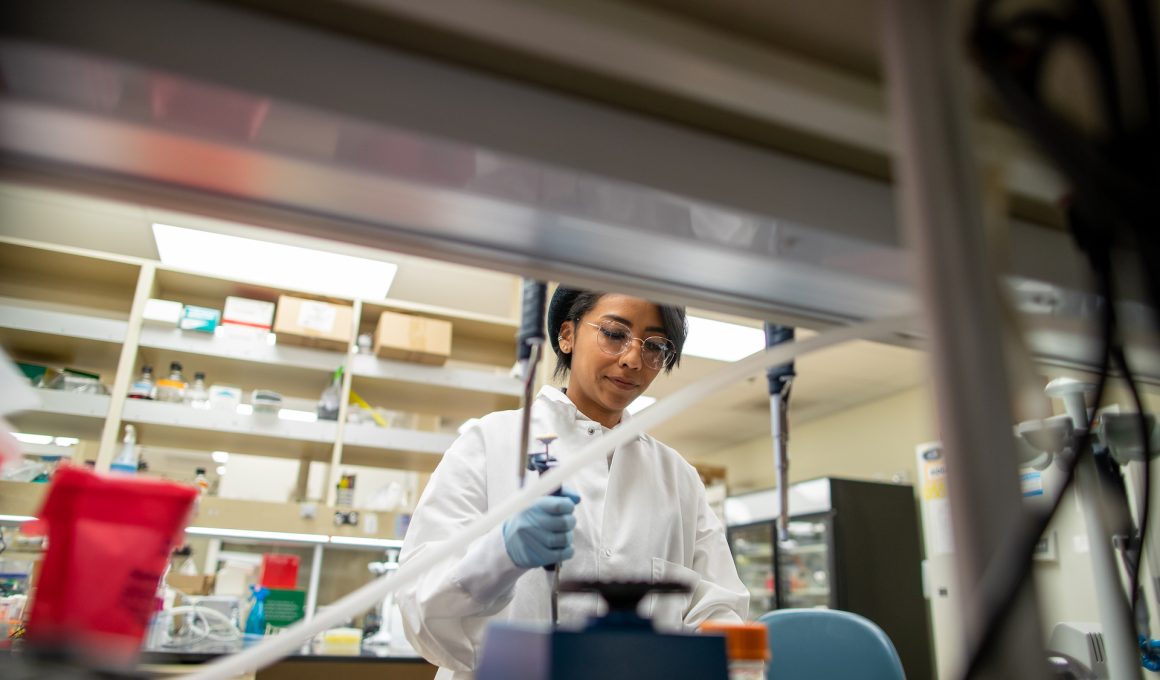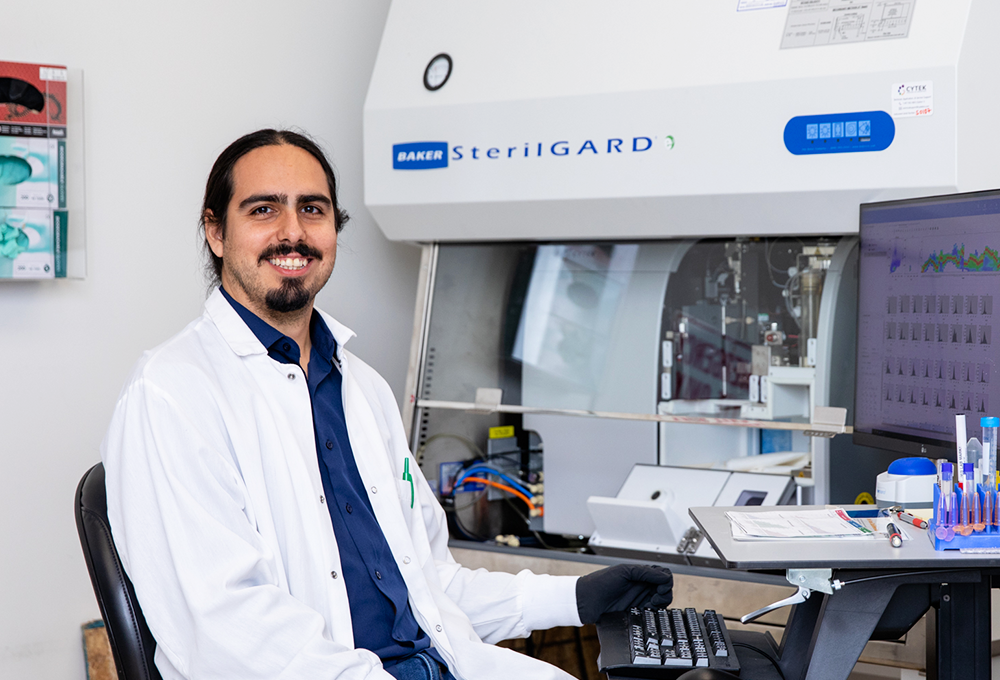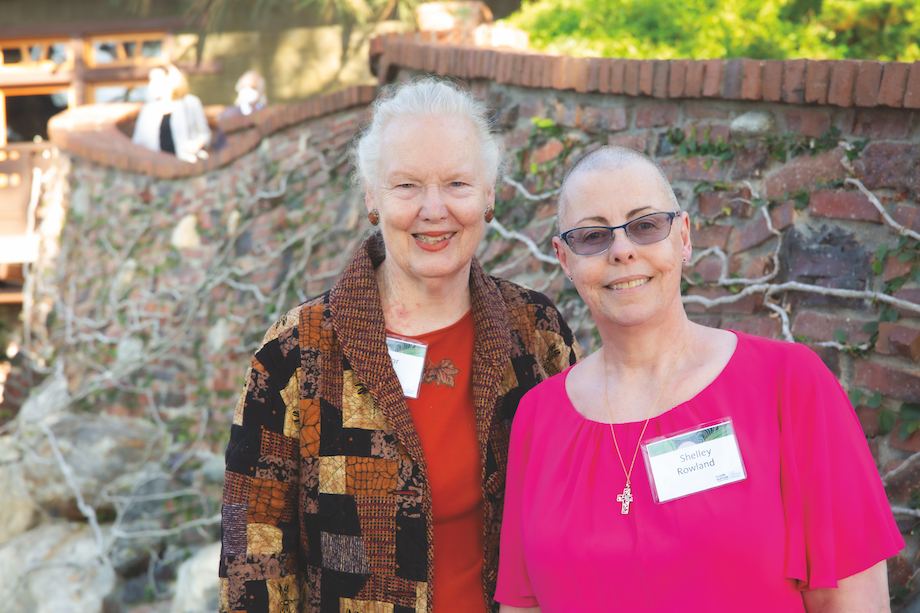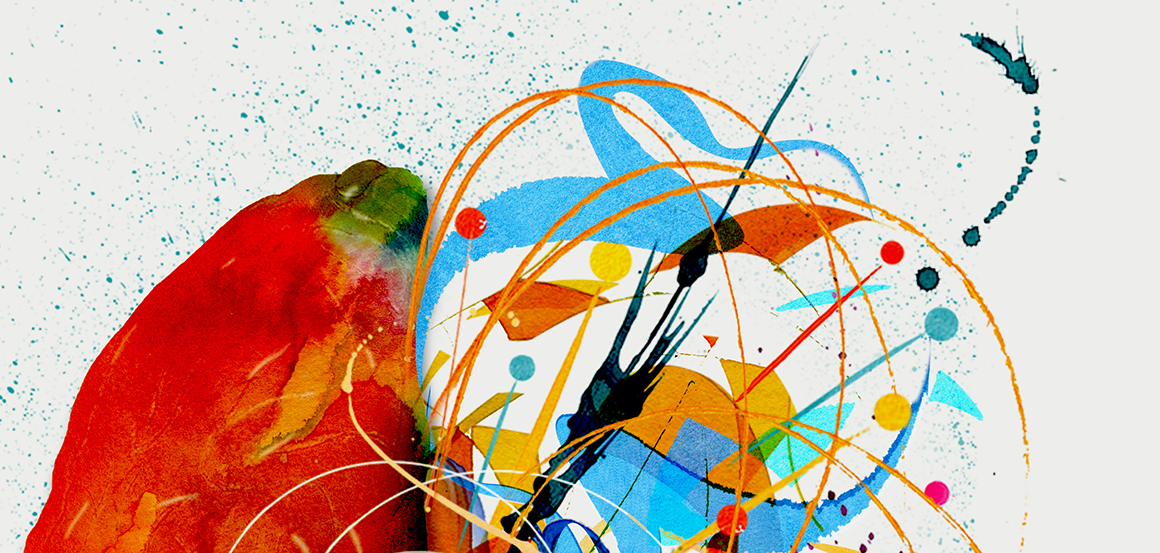Since 2005, John Keegan has been responsible for every piece of La Jolla Institute for Immunology (LJI) anatomy. If a scientist needs a new room for a multi-million dollar piece of equipment? His team builds it on time and within budget.
Keegan and his team manage everything from the real estate lease to LJI’s insurance coverages. Keegan was here when LJI’s current Research Park building was nothing more than a dirt lot studded with steel girders. And he was here when COVID-19 hit. Under his leadership, LJI continued to operate and thrive, opening new facilities to accelerate critical studies on SARS-CoV-2 infections and later COVID-19 vaccines.
Keegan was recently promoted to the position of LJI Chief Operating Officer (COO). As COO, he oversees and manages the day-to-day operations of the Institute while continually looking for ways to improve operational efficiency and anticipate future needs.
In this Q&A, he shares what it’s like to create an environment for world-changing research.
How does your team keep research running smoothly?
Our first priority is always to not interrupt the science, but to support and promote it. Research is not a 9 to 5 operation and it is very important to be present and available for the researchers when needed. There is usually activity and support happening around the clock, many times behind the scenes so that lab operations are not impacted. We have a very large and dedicated team and we all embrace providing the highest level of service. We communicate closely within groups and cast a “Service Net” across different departments that provides a full service methodology to everything we do, often involving every single department.
Wow. You have to think so many steps ahead.
I try to operate by a method called “plus five,” where we try to be five steps ahead in every possible scenario. Obviously you can’t hit them all, but that’s our mindset. It really forces you to address the “what ifs” and it’s always eye-opening what you find!
How does your team help new LJI faculty members get settled in?
The best way to get new PIs set up is to meet them, get to know them, walk around the building, and show them other researchers’ labs. We want to know what they envision as their dream set up, and then we try to get as close to that as possible.
We just started a new on-boarding process that is exciting and highly functional. It is something that Erica Ollmann Saphire brainstormed and successfully tested with Sam Myers. We have now adopted that process, modeled it, and are using it to get new faculty members acquainted with all aspects of the Institute. I am thrilled to be part of the process. It is a series of 30-minute meetings between the new faculty and every department and scientific core here at LJI, and they have been incredibly informative. This allows faculty to function efficiently and alerts the administration to what is important to them and what they need.
You led the construction of the John and Susan Major Center for Clinical Investigation, which opened in Spring 2021. You built that center extremely quickly—in the middle of a pandemic, no less. What was that like?
That was a whole new level of involvement for us. We had a vision of what we wanted, but the space was a very crowded storage area and we needed to poke a hole through the exterior of the building for a new dedicated entry door. We also had a fixed budget, and this was the middle of COVID.
LJI convinced UC San Diego to allow us to take on the role of general contractor, which had never been done on the university’s campus before. This bold step immediately cut 20 to 25 percent of the construction costs and four months off the schedule. This also allowed us to deal directly with the architects and the engineers, streamlining changes.
We had to run construction meetings the university attended and pay for all the subcontractors directly. We included our contractors in our COVID testing program to help with site safety and keep the teams working. This was a massive undertaking and I couldn’t have done it without the operations and facilities teams. They are incredibly committed and handled the majority of the heavy lifting.
We finished in just over six months, and it turned out to be a great project. Getting that up and running in time really propelled LJI’s COVID-19 research.
You’ve had a front row seat at a research organization operating at a very high level for many years. How have operations evolved?
The Institute has grown over the years, and new technologies have become available and will continue to do so. As a result, the infrastructure needs keep changing. Microscopes have evolved into ultrasensitive machines, and we had to figure out how to control vibrations and humidity. Over the last few years we also took a hard look at how we can save energy and operate in the most environmentally conscious way possible. There have been a lot of changes along the way but one operating principle never changed: Science is the reason we are all here, and it has and always will come first.
Going forward, how do you define mission success?
We succeed when we give scientists the space—physically and mentally—to do their best work. For me, it all comes down to creating an efficient environment so they can spend their time thinking about and doing research and are not slowed down by administrative obstacles or inefficient systems. Just as important is nurturing a climate of mutual respect and trust. When everyone feels heard and welcome, ideas can flow freely, and maybe even plant the seed for the next breakthrough.


